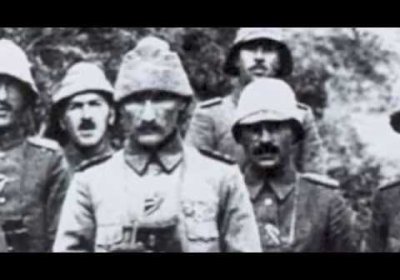Australia has again declared war on its Indigenous people, reminiscent of the brutality that brought universal condemnation on apartheid South Africa. Aboriginal people are to be driven from homelands where their communities have lived for thousands of years. In Western Australia, where mining companies make billion dollar profits exploiting Aboriginal land, the state government says it can no longer afford to "support" the homelands.
History
 Four Jobs for Women leaders in front of the steelworks in the early 1980s. Photo: Jobs for Women Facebook
In Wollongong in the early 1980s, jobs for women were scarce. They either had to wake at dawn to travel to Sydney on the diesel train or they sewed in backyard sweatshops for minimal wages.
Four Jobs for Women leaders in front of the steelworks in the early 1980s. Photo: Jobs for Women Facebook
In Wollongong in the early 1980s, jobs for women were scarce. They either had to wake at dawn to travel to Sydney on the diesel train or they sewed in backyard sweatshops for minimal wages.
Günter Grass, who was one of Germany’s most important post-war novelists, died on April 13 at the age of 87 in the town of Lübeck, in northern Germany.
Grass was perhaps most famous for his 1959 book The Tin Drum, a novel that embodied fantastical elements in its critique of Weimar and Nazi Germany. As such, his style bore resemblances to Latin America’s genre of magical realism. In 1979, the book was turned into an Academy Award winning film by Volker Schlöndorff, which won the Oscar for best foreign film.
Internationally awarded Uruguayan author and journalist Eduardo Galeano died on April 13 of lung cancer at age 75 in Montevideo, the capital of Uruguay.
Born September 3, 1940, Galeano was author of about 35 books, including 1971’s Open Veins of Latin America, which details how Western powers have exploited Latin America and its resources for centuries. It became a bestseller overnight after the late Venezuelan president Hugo Chavez handed the book a Barack Obama during the fifth Summit of the Americas in 2009.
White City, Black City: Architecture & War in Tel Aviv & Jaffa
By Sharon Rotbard
Pluto Press, £14.99
In July 2003, Unesco put the “White City” of Tel Aviv on its list of World Heritage Sites. It took almost 20 years of incessant campaigning by the Israeli state to secure this recommendation that, de facto, legitimised far-reaching aspects of Zionist ideology.
But was there any merit to the Tel Aviv case in the first place? In fact, the building of Tel Aviv began adjacently to Jaffa — one of the oldest continuously inhabited cities of the world — only from about 1909.
Terrorists from Somali Islamist group al-Shabaab massacred 142 students at Garissa University in northern Kenya on April 2. In response, the Kenyan airforce bombed what they said were al-Shabaab camps in Somalia on April 5 and 6.
Kenyan forces have been occupying Somalia since October 2011, under African Union (AU) auspices, along with troops from Uganda and Burundi.
On April 7, students protested in Garissa and the Kenyan capital, Nairobi, against the seven-hour delay in security forces reaching the university during the attack.
The Inconvenient Genocide: Who Remembers the Armenians?
Geoffrey Robertson QC, Vintage Books,
Sydney, 294 pages, 2014
On the eve of Nazi Germany’s 1939 invasion of Poland, Adolf Hitler urged his generals “to kill without mercy men, women and children of the Polish race or language”.
“Only in such a way will we win [what] we need,” Hitler said. “Who, after all, speaks today of the annihilation of the Armenians.”
The Nazi leader was referring to the genocide carried out by the Ottoman Turkish empire in 1915 against the Armenian people within its borders.
The United States is providing crucial support to regional ally Saudi Arabia ― a big buyer of US arms ― as it launches a new war in the Middle East by attacking neighbouring Yemen.
A Saudi-led coalition of Western-aligned, mainly Sunni Islamist, Arab government's launched air, naval and ground military offensive against Yemen on March 25.
Saudi Arabian forces are being supported by military planes from the United Arab Emirates, Qatar, Bahrain, Kuwait, Jordan, Morocco, Sudan and Egypt, which is also supplying naval forces.
Greece demands Germany pay war reparations
Greek Foreign Minister Nikos Kotzias has proposed creating a joint commission of Greek and German experts to address the issue of World War II reparations, TeleSUR English said on March 23.
“Athens wants to come to an agreement regarding the issue of reparations, we need to find a common denominator,” Kotzias said. The foreign minister added that he prefers a political solution to the issue, rather than a legal one.
In their short documentary released just ahead of the 100th anniversary of the ANZAC's ill-fated Gallipoli campaign, John Rainford and Peter Ewer have captured the strategic and tactical blunders that led to the deaths of so many in the 1915 Dardanelles Campaign, and the social and economic context in which it was fought.
In his latest article “New threats of war and fascism” (GLW #1045), John Pilger gives a distorted account of the wars in the former Yugoslavia.
He condemns the “criminal record” of the Kosova Liberation Army (KLA), but seems to absolve the Serbian government of any wrongdoing.
In reality Serbian chauvinism, promoted by the Slobodan Milosevic's government, was central to the breakup of Yugoslavia in the early 1990s amid the collapse of the Soviet bloc. The formation of the KLA was a response to the chauvinist politics of the Serbian regime.
If history is any guide, it is reasonable to assume that Greece’s recently-elected left-wing SYRIZA government will be subjected to a foreign-backed destabilisation campaign and possible attempts to install a new right-wing authoritarian regime.
There is a long history in Greece of the left being suppressed by the oligarchy collaborating with outside forces.
- Previous page
- Page 30
- Next page









